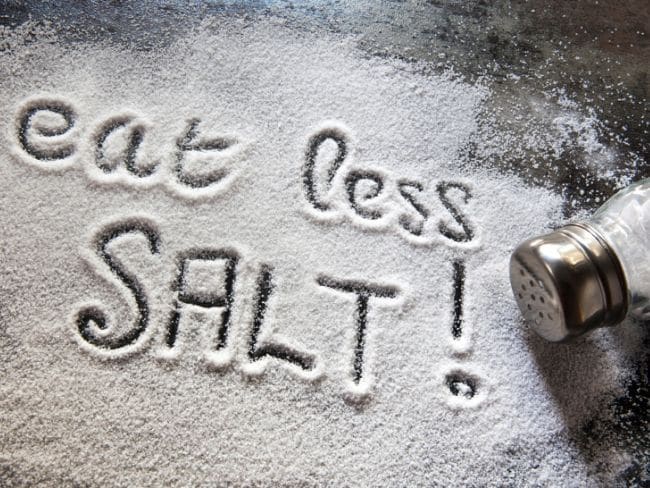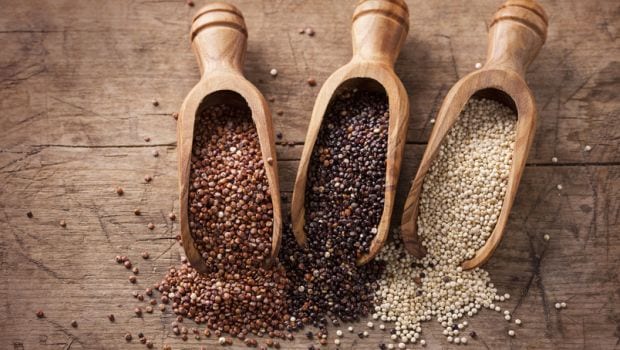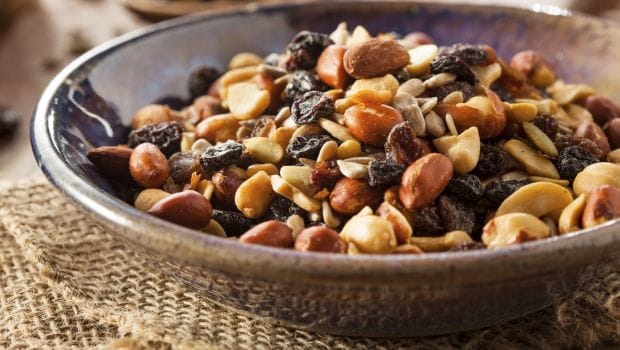
1. Include Omega-3 Fatty Acids
Omega-3 fatty acids are good fats that are advised by health experts to be included in one’s daily diet. According to a study done by Stanford University, where they pooled in data from various researches that had measured blood or tissue levels of omega-3 fatty acids, they found that blood levels of seafood and plant-basedomega-3 fatty acids are moderately associated with a lower risk of dying from heart attacks. They stated that eating omega-3 food sources such as salmon, trout, walnuts and flaxseed oil may significantly cut the incidence of developing a heart disease.
(8 Incredible Sources of Omega 3 Foods)

2. Eat Fruits Like Cranberries and Blueberries
It’s not without reason that health experts advise us to include fruits and veggies in our regular diet. They come loaded with essential minerals, vitamins and antioxidants that are great for our well-being. Take cranberries for instance. According to a study done by Boston University, cranberries could protect the gut microbiota and provide antioxidant and anti-inflammatory functions that benefit the cardiovascular system, metabolism and immune function. Blueberries are an excellent source of antioxidants called anthocyanin which cuts down cholesterol levels.

3. Eat Less Salt and Cut Down Junk Food
As much as we love our regional Indian salty snacks, too much of it can cause harm to our health. A recent study conducted by an Australian firm has revealed that Indians love salt a little too much. The study suggests that an average Indian consumes about 119% more salt than the WHO recommendation. Doctors have always recommended to consume less salt because excess of it cause spike up blood pressure levels, leading to heart issues. So you need to cut down on junk and processed food because they contain high amounts of salt.

4. Dark Chocolates Could Be Good
Good news for dark chocolate lovers! Eating a little bit of dark chocolate daily can actually be good for your heart. Scientists have found that consuming flavanol-rich cocoa products such as dark chocolates may benefit cardiovascular health. They also saw significant declines in blood glucose and insulin, as well as another indicator of insulin resistance called HOMA-IR. But remember, it doesn’t apply to white chocolates and chocolate candies which come loaded with sugar.

5. Sip Healthy Beverages
Most often we don’t pay heed to our eating habits. While we love that cup of sugar loaded masala chai early in the morning, it may not be the best thing for your health. Scientists say that green tea and coffee, if made a regular part of the diet, could benefit the heart by reducing risks of stroke. Green tea is a great source of antioxidants and it prevents blood clotting, whereas just two mugs of coffee can cut the odds of cardiac trouble.

6. Include Whole Grains
According to Dr. Rupali Datta, Consultant Nutritionist, “Whole grains are excellent sources of fiber and other nutrients that provide protection to the heart. Have at least three servings of whole grains in a day. Include whole-grain atta and multi-grain breakfast cereals which provide at least 3-5 gm fiber/serving. Be adventurous, substitute refined cereals with these healthy whole grains: barley, oats, quinoa and buckwheat.”

7. Include Unsaturated Fats
These are the good guys and they include food sources like nuts, salmon, tofu, soy, olive oil, etc. What you must avoid are transfats, which is commonly available in junk food; and reduce saturated fats like red meat, butter, etc. These are known to increase bad cholesterol in the body, which leads to heart issues.

8. Vitamin C to the Rescue
According to Dr. Gargi Sharma, Weight Management expert, “include Vitamin C rich foods like oranges, lemons, and amla in your diet. It is a proven fact that Vitamin C helps in lowering the risk of heart diseases because of its antioxidant properties.”

9. Exercise and ExercisePhysical activity is a compulsion to maintain a healthy heart. Regular exercise helps in blood circulation and flushing out toxins from the body. According to a Swedish study, moderate amount of physical activity, particularly walking and bicycling for 20 minutes daily, can significantly lower the risk of heart failure. So if you don’t have time for your cardio exercises, Zumba, Pilates, etc. just go out for a brisk walk.

10. Give Up Smoking
Cigarette smokers have a higher risk of developing cardiovascular disease. If you smoke, quitting is the best thing you can do for your health. The health hazards of nicotine are enormous, leading to various diseases.











